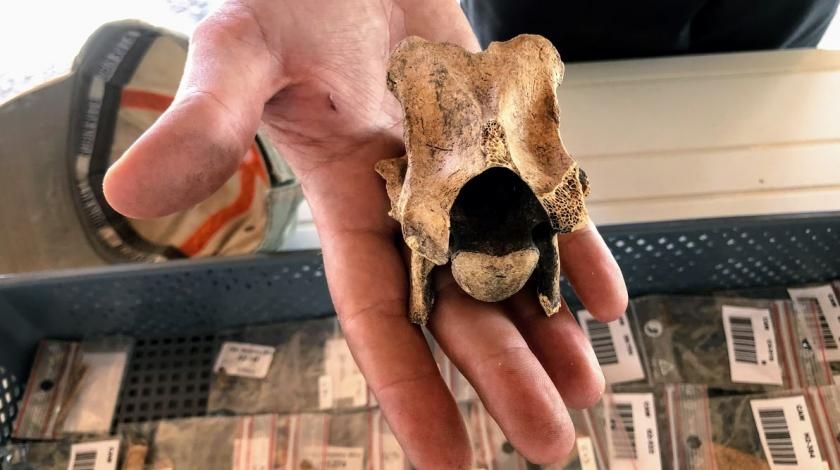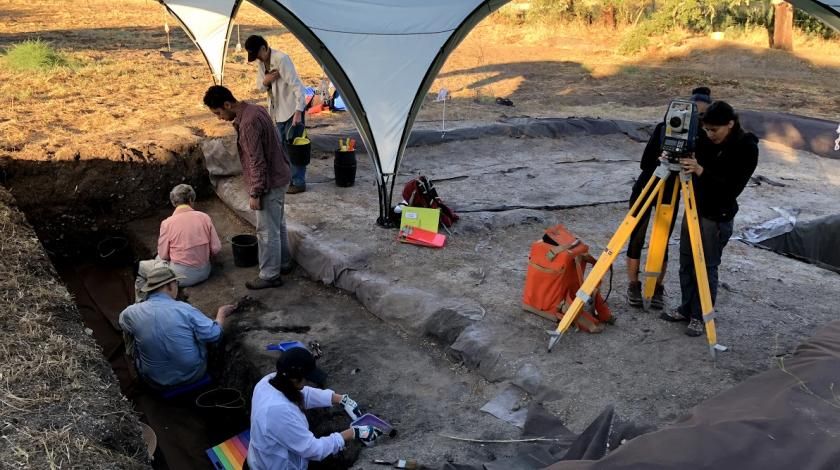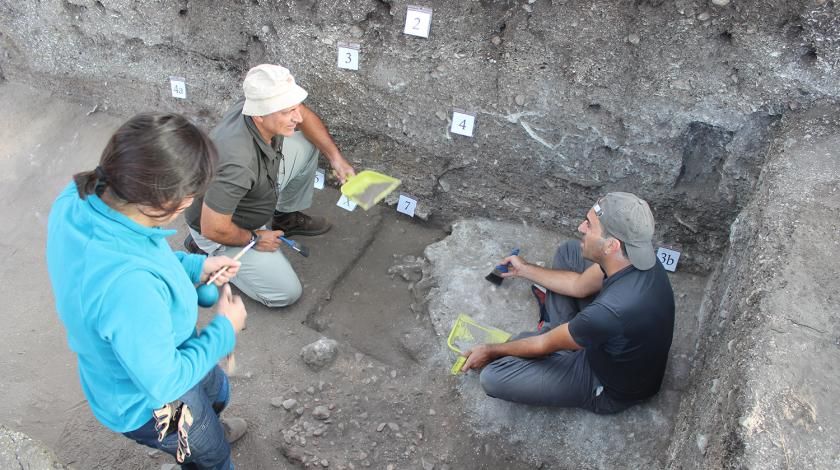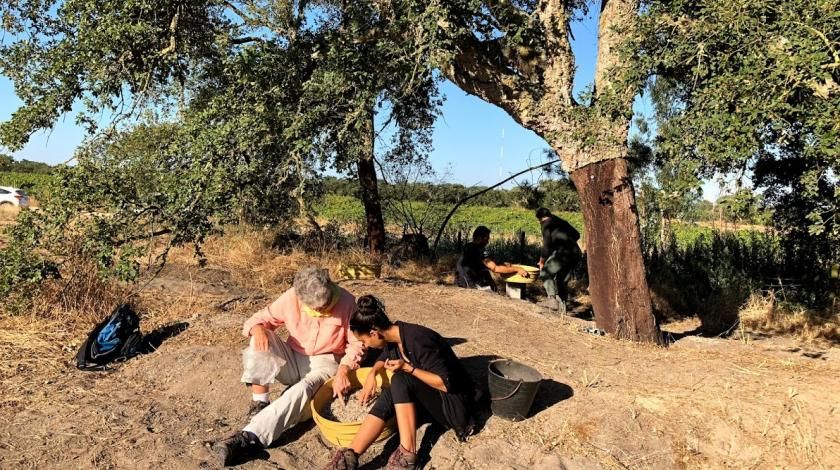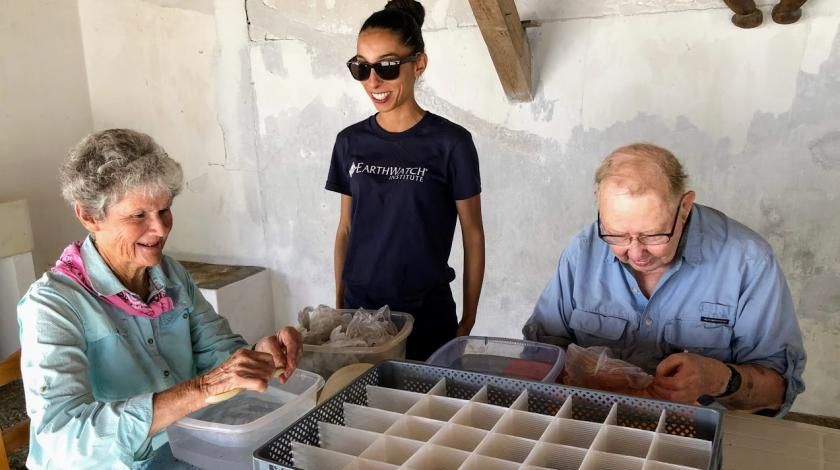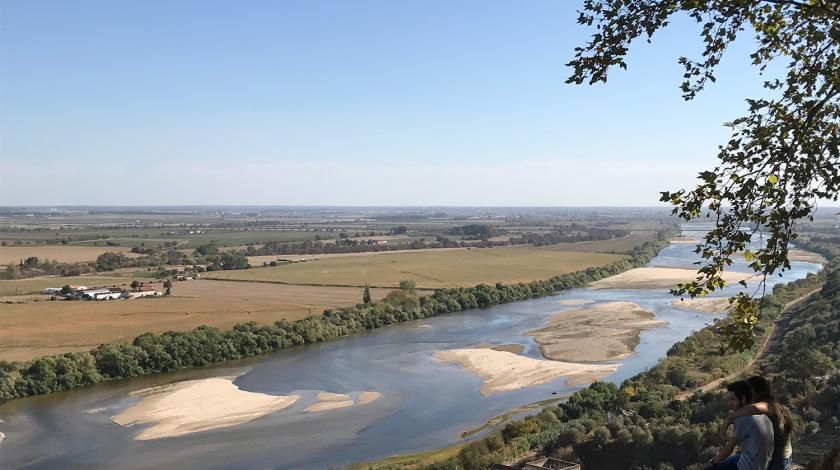Discovering Ancient Societies in Portugal
Hunter-gatherers and farmers may have coexisted for a brief time in ancient Portuguese societies before the shift to agriculture. Unearth the mystery of this transition.
Around 8,000 years ago, Central Portugal underwent a dramatic shift in lifestyles from hunting and gathering to farming and herding. This transition, known as the Mesolithic-Neolithic transition, remains one of the most controversial issues in prehistory archaeology, attracting significant archaeological debate and extensive research. The common-held belief is that hunter-gatherers disappeared from Central Portugal around 7,000 years ago, and later, farmers and herders settled the area. But now, archaeologists are uncovering clues contradicting this.
By analyzing bone tools, shells, ornaments and human remains, researchers will trace the transition between these periods to better understand the complex changes not only in technology and subsistence, but also in how people thought about themselves and the world around them, as well as the nature of their social interactions.
Join researchers in Tagus Valley, Portugal, one of the most important regions to study this transitional phase, and help discover the answers to establish a timeline. You’ll excavate, sifting for tools and human remains, while working to preserve part of Portugal’s natural and cultural heritage.
For more information or to book contact our office (03) 9016 7590 or email
Jennifer Lauer | SEPTEMBER 13, 2019 ★★★★★
"Discovering Ancient Societies in Portugal"
This was a great expedition, I enjoyed it a lot. The staff was particularly fantastic: everyone was very friendly and knowledgeable and happy to talk to us about all aspects of the project. We were able to spend a lot of time in the field, in the lab, and in the evening, talking and getting to know each other. They were some of the best staff I've worked with on an expedition. They took the time to explain and demonstrate what they needed to be done, and they worked with us constantly.
Naomi Hsu | AUGUST 14, 2019 ★★★★★
"Archaeological Rigor and Cultural Learning in Idyllic Portugal"
This was my first time participating in an archaeological excavation, and I couldn't have asked for a better experience. The research questions animating the project are intriguing, and the work we did was a balanced sample of the extensive variety of tasks involved in collecting and preparing archaeological data for analysis. Our daily schedule included a combination of digging, recording the 3D location of larger excavated items with a total station, sieving sediment to identify smaller items, and processing excavated items in lab. The team from the University of Algarve--Lino, Joana, Meghan, Roxane, Joao, and Celia--was truly wonderful and exceptionally dedicated. Every one of them was consistently attentive and supportive during both fieldwork and lab work, and very fun and engaging during off-hours. Through them, we were introduced to many aspects of Portuguese culture: the amazing cuisine (with dinner--including wine--out each night), the language, some of the major traditions (including lively visits to a summer festival), and certain perceptual and behavioral nuances. For me, that kind of cultural enrichment during the expedition was as valuable as the archaeological experience. For accommodations, we were graciously hosted at Casa Cadaval, a beautiful and very comfortable historical wine estate where fellow participants gathered in a charming breezeway on the 2nd floor to enjoy breakfast, lunch, and downtime. All in all, this expedition was spectacular.
Warren Stortroen | SEPTEMBER 9, 2018 ★★★★★
"Archaeology while living in a palace in central Portugal."
Our very spacious and comfortable quarters were on the second floor of the palace on a large old farm and winery called Casa Cadaval! My room with large bath was nicely furnished and the bed with duvet was wonderfully comfortable. We had a well stocked kitchen down the hall and an airy breezeway dining area for our breakfasts and lunches. While eating we watched a pair of storks that had a nest on a nearby chimney. The countess and her wine taster held a very nice wine tasting for us one afternoon! Each morning we drove past the vineyards and a horse pasture to our dig site in a cork oak grove only 10 minutes away. The site was an ancient shellmidden - a mound made up almost entirely of crushed seahells of many kinds, fire-cracked rock, charcoal, fish bone and animal bone, together with some quartz or chert flakes or possible tools.. We excavated small units and when we had a full bucket would screen it for the small ltems. The fire-cracked rock and all larger items were recorded in place using a total station laser, and bagged individually. We found several fairly large pieces of bone and my best finds were a complete horse tooth and a red deer antler. The weather was hot and dry, but the dig site was shaded by a canopy and we did our screening under a large cork oak tree, so generally it was quite pleasant work. The archaeologists Joao. Celia and Lino with graduate assistants Elena and Roxanne were all great to work with! They were always cheerful and helpful, and provided everything we needed to do the work efficiently. Because of the heat we left for the site at 7:30 AM and returned around 12:30 or 1:00 for a two hour lunch and rest before washing and sorting the artifacts and helping with other lab work. Dinner at 7:30 PM was quite an event! We usually ate at an excellent local restaurant specializing in fresh seafood, with shrimp, mussel and other seafood appetizers, very generous meals, local wine and a great selection of desserts! I have been on over 100 Earthwatch expeditions and have never been treated better than on this one! The work was fascinating, the countryside was beautiful and the people were wonderful I definitely rate it as one of my all-time favorites!
-
 Activity Level: Very Easy
Activity Level: Very Easy -
 Location: Muge, Salvaterra de Magos, Santarém, Portugal
Location: Muge, Salvaterra de Magos, Santarém, Portugal -
 Lead Scientist:
Lead Scientist:


